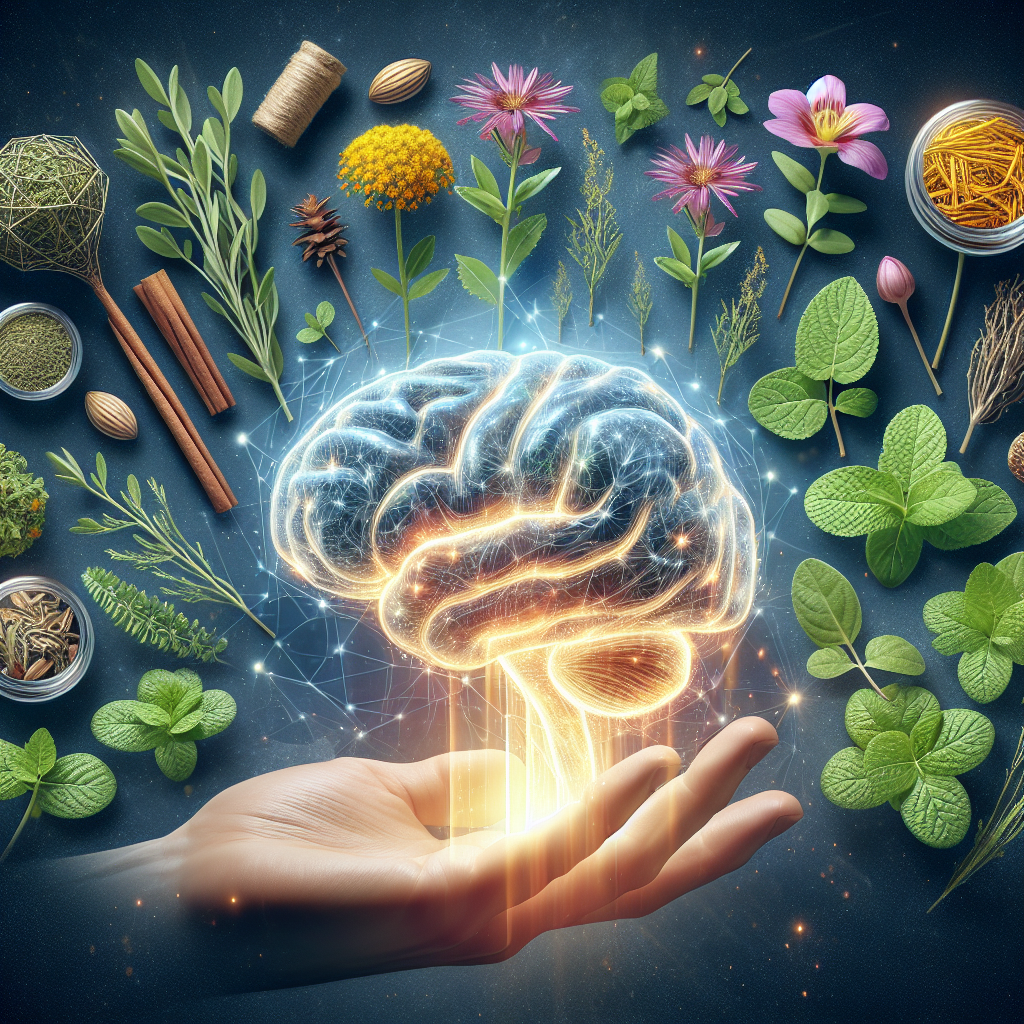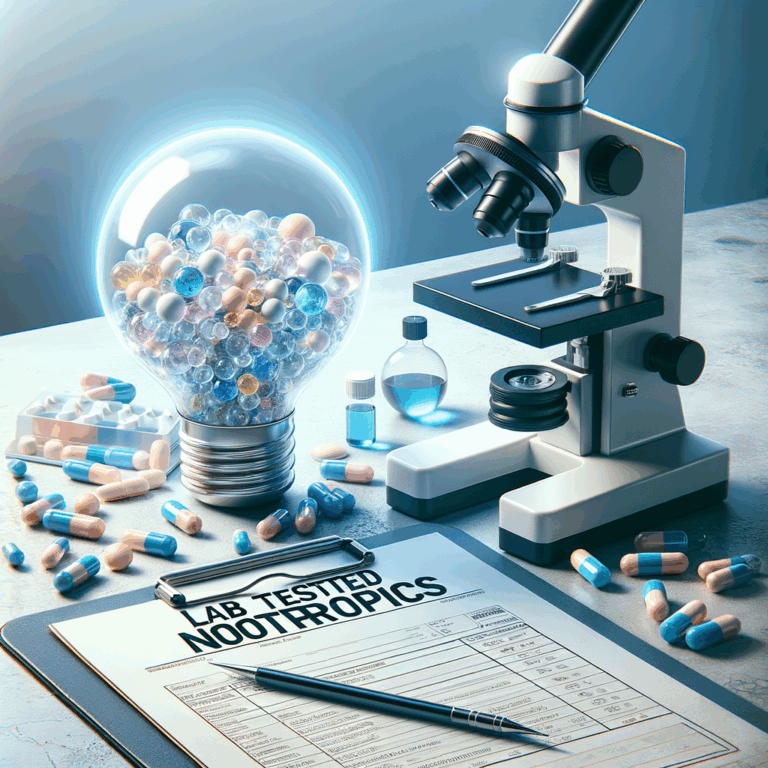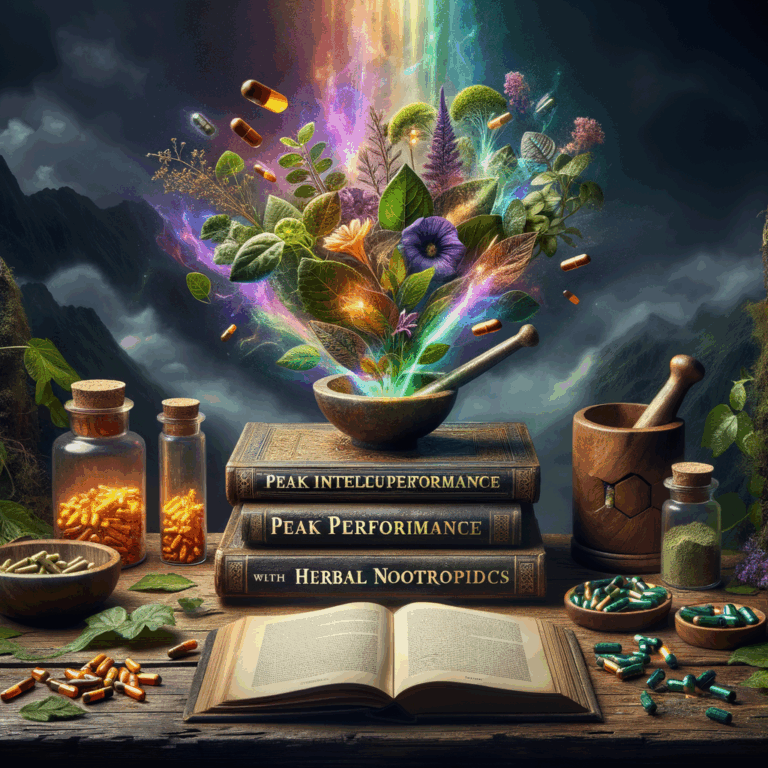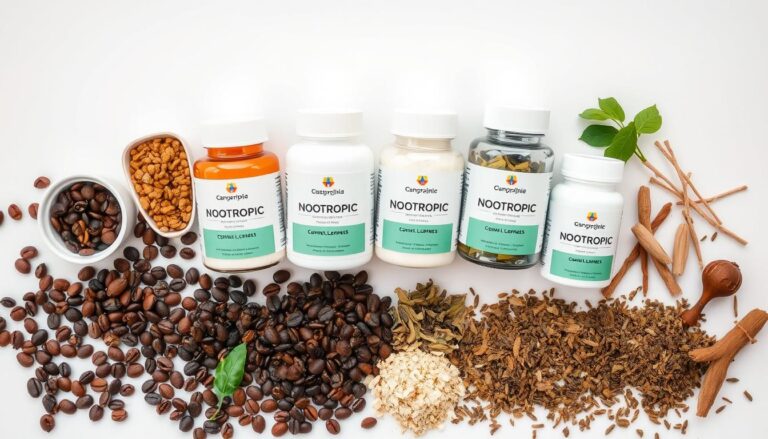
- What Are Smart Drugs?
- Why Choose Herbal Nootropics Over Pharmaceuticals?
- Popular Herbal Nootropics to Consider
- 1. Ginkgo Biloba
- 2. Bacopa Monnieri
- 3. Rhodiola Rosea
- 4. Ashwagandha
- 5. Lion’s Mane Mushroom
- 6. Panax Ginseng
- 7. Gotu Kola
- 8. Schisandra Chinensis
- 9. Matcha Green Tea
- 10. Mucuna Pruriens
- How to Use Smart Drugs Effectively
- 1. Understand Your Needs
- 2. Start Slow and Observe
- 3. Combine Nootropics Wisely
- 4. Maintain a Healthy Lifestyle
- 5. Stay Hydrated
- Potential Side Effects of Herbal Nootropics
- Common Side Effects
- Reduced Side Effects
- The Future of Smart Drugs
- FAQs About Smart Drugs
- 1. Are smart drugs safe?
- 2. Can I use multiple nootropics together?
- 3. How long do I need to take nootropics to see results?
- 4. Can I use smart drugs with prescription medications?
- 5. How do I know which nootropic is best for me?
- 6. Can I become dependent on herbal nootropics?
- 7. Are there any long-term studies on herbal nootropics?
- 8. Can I get the benefits of nootropics from diet alone?
- 9. How should I store my nootropic supplements?
- 10. What happens if I miss a dose?
- Conclusion
- References
Understanding Smart Drugs: Stunning Herbal Nootropics for Effortless Focus
In today’s fast-paced world, many seek ways to enhance their mental performance and boost their focus. From students pulling all-nighters to professionals navigating a busy workday, everyone desires a little more brainpower. Enter smart drugs, a term encompassing a variety of substances, including stunning herbal nootropics that promise effortless focus and cognitive enhancement.
What Are Smart Drugs?
Smart drugs, also called nootropics, are compounds that aim to improve cognitive function. These substances can enhance memory, focus, creativity, and motivation. While many will think of pharmaceuticals like Adderall when they hear “smart drugs,” this term also includes herbal supplements. These herbal nootropics offer a natural alternative for mental enhancement.
The story of smart drugs isn’t new. Ancient cultures have used plants for cognitive enhancement for centuries. Herbal remedies like Ginseng and Ginkgo biloba have found their way into modern wellness practices as people increasingly seek natural solutions.
Why Choose Herbal Nootropics Over Pharmaceuticals?
Pharmaceutical smart drugs can be effective, but they often come with side effects. Many users report anxiety, insomnia, and even dependency with certain prescription medications. Herbal nootropics, on the other hand, tend to be gentler on the system. They often provide a broader range of benefits while mitigating many of the side effects associated with their pharmaceutical counterparts.
Herbal nootropics excel in promoting overall brain health. Many support neuroprotection, enhancing your brain’s longevity. This is essential, especially as we age. Unlike some pharmaceuticals, herbal nootropics typically offer a holistic approach to cognitive enhancement, meaning they aid multiple areas, not just one.
Popular Herbal Nootropics to Consider
When exploring smart drugs, several herbal nootropics stand out. Here’s a list of some popular options.
1. Ginkgo Biloba
Ginkgo biloba is one of the oldest living tree species. Its leaves have been used in traditional medicine for centuries. Research indicates that Ginkgo can improve memory and enhance circulation. It may benefit individuals experiencing cognitive decline.
2. Bacopa Monnieri
Bacopa monnieri, also known as Brahmi, has roots in Ayurvedic medicine. Studies show it can improve memory recall and reduce anxiety. Many users praise its ability to enhance long-term retention of information.
3. Rhodiola Rosea
Rhodiola rosea, often referred to as “golden root,” is an adaptogen. This means it helps the body adapt to stress. Research suggests Rhodiola can enhance focus and combat fatigue, making it ideal for intense study sessions or high-pressure work environments.
4. Ashwagandha
Ashwagandha is another powerful adaptogen. It significantly reduces stress and anxiety levels, promoting a calm and focused mind. Additionally, it can improve attention span and cognitive function over time.
5. Lion’s Mane Mushroom
Lion’s mane mushroom has gained popularity for its neuroprotective qualities. It may stimulate nerve growth factor (NGF), promoting the growth of new neurons. Users often note enhanced memory and focus with regular intake.
6. Panax Ginseng
Panax ginseng is known for its energy-boosting properties. This herbal nootropic may also improve cognitive speed and enhance mood. Regular users find it helps them stay alert and on task.
7. Gotu Kola
Gotu kola is revered in traditional medicine as a brain tonic. It supports mental clarity and cognitive function while promoting relaxation. This nootropic is perfect for individuals seeking focus without jitters.
8. Schisandra Chinensis
Schisandra chinensis, or five-flavor fruit, has been used in Chinese medicine for centuries. This nootropic can enhance stamina and mental performance. Moreover, it helps combat oxidative stress in the brain.
9. Matcha Green Tea
Matcha’s popularity has surged, partly due to its nootropic properties. Rich in catechins and L-theanine, it provides sustained energy without the crash, making it ideal for maintaining focus throughout the day.
10. Mucuna Pruriens
Mucuna pruriens, also known as velvet bean, contains L-DOPA, a precursor to dopamine. Boosting dopamine levels can improve mood, motivation, and cognitive function. Users often report heightened mental clarity and focus.
How to Use Smart Drugs Effectively
When incorporating smart drugs into your routine, consider the following steps for optimal results.
1. Understand Your Needs
First, identify what you aim to achieve. Is it improved memory, better focus, or reduced stress? Knowing your goals helps in choosing the right nootropic.
2. Start Slow and Observe
Begin with a low dose to assess how your body responds. Monitor your reactions and adjust the dosage based on your experience. Patience is key; individual results may vary.
3. Combine Nootropics Wisely
Many users stack nootropics to maximize benefits. Combining ingredients like Ginkgo biloba with Bacopa monnieri may enhance cognitive effects. However, ensure compatibility and research potential interactions.
4. Maintain a Healthy Lifestyle
Diet, exercise, and sleep play significant roles in cognitive function. No nootropic can replace a balanced lifestyle. Prioritize good nutrition and regular physical activity.
5. Stay Hydrated
Hydration impacts brain health. Dehydration can lead to fatigue and reduced cognitive ability. Drink enough water throughout the day to keep your mind sharp.
Potential Side Effects of Herbal Nootropics
While herbal nootropics are generally safer than pharmaceuticals, they can still have side effects. Always consider the potential risks.
Common Side Effects
1. Gastrointestinal Issues: Some users may experience nausea or digestive discomfort.
2. Allergic Reactions: A few may have allergic reactions to specific plants.
3. Insomnia: Certain nootropics, like Panax ginseng, can cause insomnia if taken too late in the day.
4. Increased Heart Rate: Adaptogens like Rhodiola may elevate heart rate in some individuals.
Reduced Side Effects
To minimize side effects, stick to recommended dosages. Additionally, it’s wise to consult a healthcare professional before starting any new supplement, especially if you have pre-existing conditions or are on medication.
The Future of Smart Drugs
As science continues to advance, the market for smart drugs is likely to expand. Research will explore the depths of herbal nootropics and their potential for cognitive enhancement. Academic institutions are investigating their effects and the mechanisms behind them. Such studies could pave the way for safe, effective nootropic solutions.
Manufacturers are also innovating, creating blended formulations that combine multiple nootropics for enhanced effects. This evolution offers exciting opportunities for individuals seeking improved brain health and cognitive function.
FAQs About Smart Drugs
1. Are smart drugs safe?
Smart drugs, especially herbal nootropics, are generally safe when taken as directed. However, side effects can occur. Always consult a healthcare professional to ensure safety.
2. Can I use multiple nootropics together?
Yes, many users combine nootropics to enhance effects. However, research compatibility and consult a healthcare provider to avoid adverse interactions.
3. How long do I need to take nootropics to see results?
Results can vary but often appear within a few weeks. Patience is crucial; individual responses differ based on personal health and nootropic choice.
4. Can I use smart drugs with prescription medications?
Consult your healthcare provider before combining any nootropic with prescription medications. Interactions can occur, affecting both efficacy and safety.
5. How do I know which nootropic is best for me?
Identify your cognitive goals, whether it’s improved focus, memory, or stress reduction. Research the nootropics that align with these goals for optimal results.
6. Can I become dependent on herbal nootropics?
Herbal nootropics are less likely to cause dependency compared to pharmaceutical options. However, using them responsibly and as directed is key to preventing over-reliance.
7. Are there any long-term studies on herbal nootropics?
Research is ongoing, with studies evaluating the long-term effects of many herbal nootropics. Keep an eye out for emerging data and recommendations.
8. Can I get the benefits of nootropics from diet alone?
A balanced diet rich in antioxidants, omega-3 fatty acids, and vitamins supports cognitive health. However, targeted nootropic supplements may provide enhanced and focused benefits.
9. How should I store my nootropic supplements?
Store nootropic supplements in a cool, dry place away from direct sunlight. Follow label instructions for optimal freshness and efficacy.
10. What happens if I miss a dose?
If you miss a dose of your nootropic, take it as soon as you remember. If it’s close to the time for your next dose, skip it. Avoid doubling up to compensate.
Conclusion
Smart drugs, particularly stunning herbal nootropics, offer an exciting opportunity for those looking to enhance their cognitive abilities. By understanding these natural alternatives and using them responsibly, individuals can unlock their full mental potential, boosting productivity and focus in everyday life.
As we continue to explore the vast world of smart drugs, remember that no supplement can replace a balanced lifestyle. Prioritizing sleep, exercise, and nutrition will always form the foundation of optimal brain health. So, go ahead and explore these fascinating herbal nootropics, and see how they can help you achieve your mental goals.
References
1. Healthline – What Are Nootropics?
2. WebMD – Ginkgo Biloba
3. NCCIH – Bacopa Monnieri
4. Medical News Today: Rhodiola Rosea
5. Verywell Mind – The Benefits and Risks of Using Nootropics



